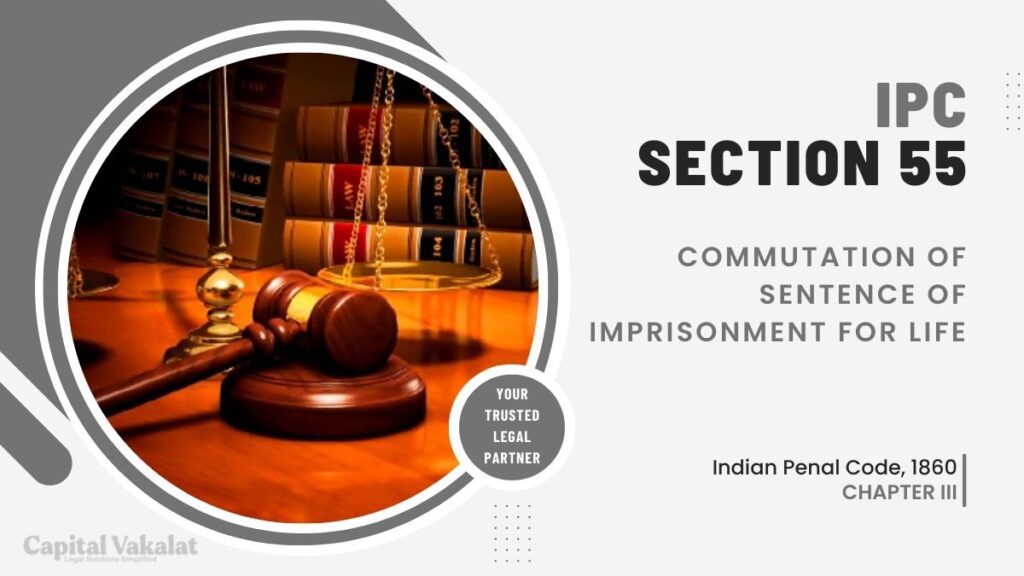In the realm of legal intricacies, Section 55 of the Indian Penal Code (IPC) holds a significant place. It deals with the commutation of sentences of imprisonment for life. This provision embodies the humane aspect of the legal system, offering individuals a chance for redemption and reintegration into society.

In this article, we will delve into the details of Section 55 IPC, exploring its nuances and implications.
Understanding the Essence of Section 55 IPC
The Purpose of Commutation
Section 55 IPC primarily serves as a mechanism for reducing the severity of punishment for individuals sentenced to life imprisonment. The overarching goal is to provide hope and an opportunity for rehabilitation to those convicted of serious crimes.
Eligibility Criteria
Not every convict is eligible for commutation. The section stipulates certain criteria that must be met for a sentence to be commuted. This includes factors such as the nature of the crime, the conduct of the convict during imprisonment, and the recommendations of prison authorities.
Role of the State Government
The power to commute a life sentence rests with the state government. They play a crucial role in the decision-making process. It is essential for them to consider various aspects before granting commutation, such as the impact on society and the interests of justice.
The Procedure for Commutation
Application Process
Convicts seeking commutation must submit a formal application to the concerned state government. This application should include details about their conduct during imprisonment and any other relevant information.
Evaluation by Prison Authorities
Prison authorities play a pivotal role in assessing the behavior and conduct of the convict while serving the life sentence. Their recommendations can significantly influence the decision of the state government.
Consideration by the State Government
Once the application and recommendations are received, the state government carefully evaluates the case. They weigh the gravity of the crime against the conduct of the convict during imprisonment.
Governor’s Decision
Ultimately, the decision to commute a life sentence lies with the Governor. The Governor, after careful consideration, may decide to grant commutation if deemed appropriate.
The Significance of Commutation
Humanitarian Approach
Section 55 IPC reflects the humanitarian values of the legal system. It recognizes that individuals can change and offers them a chance at redemption through commutation.
Reducing Overcrowding
Commutation also helps in reducing overcrowding in prisons, which is a significant issue faced by the Indian penal system.
Challenges and Controversies
Public Perception
The concept of commuting life sentences is not without controversy. Some argue that it may send the wrong message to society, while others view it as a necessary step towards rehabilitation.
Striking a Balance
The challenge lies in striking a balance between the interests of justice, the rights of the convict, and the concerns of society.
Conclusion
In conclusion, Section 55 IPC plays a vital role in the Indian legal system by providing a mechanism for the commutation of sentences of imprisonment for life. It embodies the values of compassion and hope, recognizing that individuals can change and deserve a second chance. However, it also raises important questions about the balance between justice and rehabilitation.
FAQs
What factors are considered when deciding to commute a life sentence?
Factors such as the nature of the crime, the conduct of the convict during imprisonment, and recommendations from prison authorities are taken into account.
Why is commutation important in the legal system?
Commutation provides hope for rehabilitation and helps in reducing overcrowding in prisons.
What challenges are associated with commuting life sentences?
Commutation can be controversial, with concerns about its impact on society and the rights of the convict.
Where can I learn more about Section 55 IPC and its application?
For further information, you can access the relevant legal resources. Additionally, you can explore the topic in-depth by accessing the following link